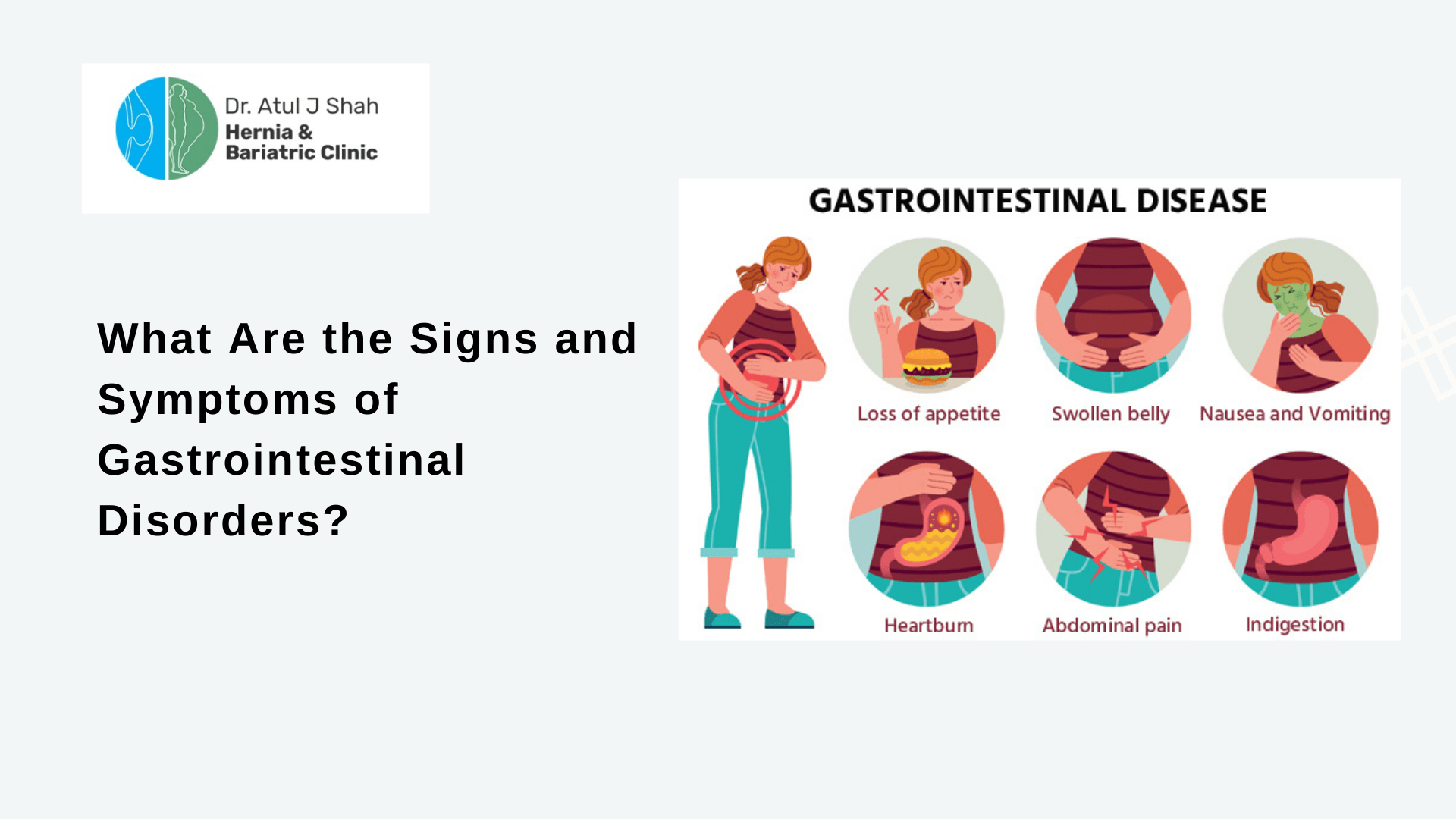Gastrointestinal disorders refer to a wide range of conditions affecting the digestive system, including the esophagus, stomach, small intestine, large intestine, liver, gallbladder, and pancreas. These disorders can cause a variety of symptoms that may range from mild discomfort to severe pain and discomfort, making it essential to recognize the signs and symptoms early on. In this blog, we will discuss the most common signs and symptoms of gastrointestinal disorders to help you identify and seek timely medical care to manage the condition effectively.
Gastrointestinal Symptoms and Signs
Excessive gas and bloating:
Bloating can be an indicator of various GI problems such as Irritable Bowel Syndrome or a dietary intolerance like Celiac disease.
Constipation:
When you have fewer than three bowel movements per week or pass hard, dry stool, you may have chronic constipation, which is a recognized GI illness.
Diarrhea:
Long-term diarrhea may indicate a digestive problem such as lactose intolerance or inflammatory bowel disease.
Heartburn:
If you experience heartburn more than twice a week, you may have Gastroesophageal Reflux Disease (GERD), which can damage your esophagus if left untreated.
Vomiting and Nausea:
Nausea is a common symptom of severe pain and can be caused by anything from an allergy to cancer. Nausea and vomiting can also signal a GI tract or gallbladder infection, appendicitis, intestinal blockage, Irritable Bowel Syndrome, diverticulitis, and pancreatitis.
Abdominal Pain:
Persistent stomach pain is a symptom of several digestive illnesses, and it is essential to see a doctor if you experience it.
Also Read: Laparoscopic Gallbladder Removal (Cholecystectomy): Understanding the Procedure
Gastrointestinal Treatment
The treatment for stomach or digestive issues varies based on the diagnosis, but may include the following options:
- Over-the-counter medications to alleviate symptoms
- Staying hydrated and getting rest
- Following the BRAT diet, which includes bananas, rice, applesauce, and toast – all of which are gentle on the stomach and healthy. Meanwhile, it is recommended to avoid dairy, fatty foods, and spicy foods that can irritate the digestive system.
- In some cases, medication may be prescribed after a medical examination to alleviate symptoms such as nausea, provide comfort, and aid in rehydration. Anti-nausea medications and/or intravenous (IV) rehydration may be administered if necessary.
Gastrointestinal diseases can range in severity from minor to severe. If you are experiencing the symptoms mentioned below frequently or they are causing you significant discomfort, your body may be trying to inform you that you have a gastrointestinal condition. If you are experiencing any of these concerning stomach symptoms, it is recommended that you schedule an appointment with Dr. Atul Shah. If you are unsure if your gastrointestinal discomfort requires a visit to a gastroenterologist, keep in mind that any condition you consider to be “chronic” and/or “severe” should be evaluated and diagnosed by a healthcare professional.



